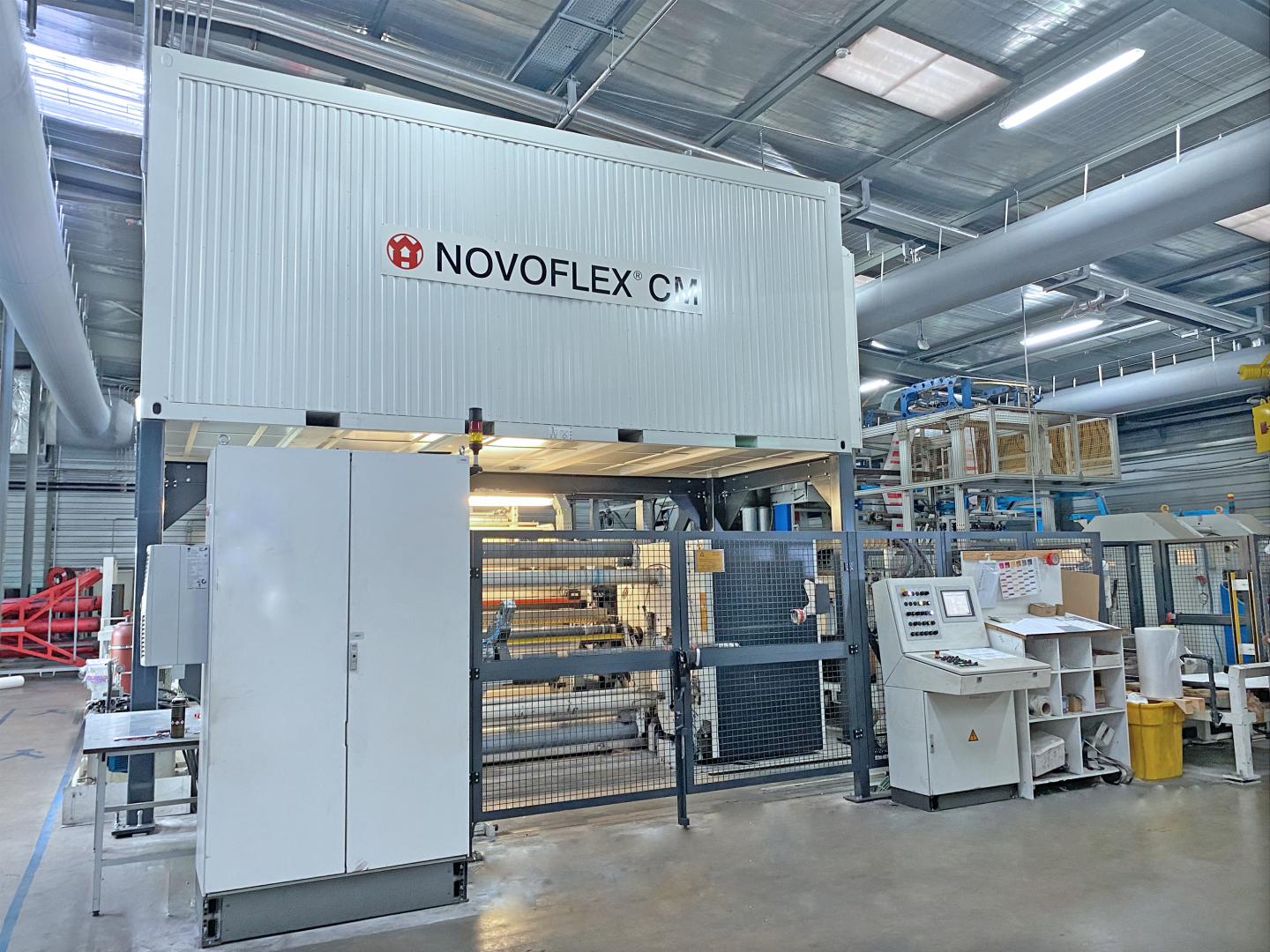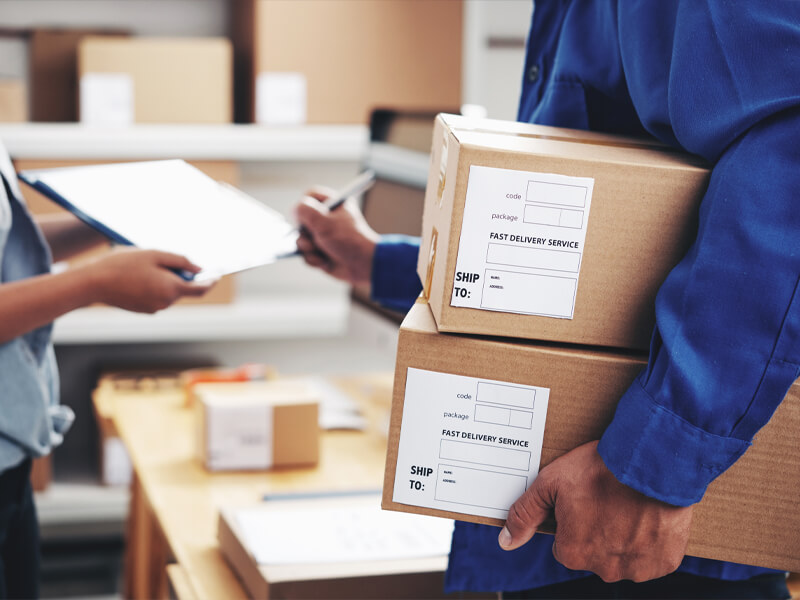Eco-Friendly Practices: Driving Modification with Bulk Container Recycling
Wiki Article
Efficient Industrial Recycling Solutions for Lasting Product Packaging: A Comprehensive Guide
That's where this thorough overview on effective commercial recycling options for sustainable packaging comes in. By exploring crucial locations such as product packaging material choice, creating for recyclability, carrying out recycling infrastructure, working together with recycling companions, and tracking and measuring reusing success, this overview will certainly equip you with the understanding and tools needed to make educated choices and drive favorable modification within your organization. Whether you're a product packaging expert, sustainability supervisor, or just interested in the topic, this guide will give valuable understandings and methods to aid you navigate the globe of sustainable product packaging.Product Packaging Product Option
The option of product packaging products plays a vital duty in ensuring the sustainability of commercial recycling services. When it comes to lasting packaging, the choice of products is vital in decreasing ecological influence and taking full advantage of reusing efficiency. Choosing the best materials can help in reducing waste generation, preserve resources, and advertise a circular economic climate.One important aspect to take into consideration in product packaging material option is recyclability - industrial packaging solutions. Products that can be easily reused and incorporated back right into the manufacturing cycle are chosen. For instance, materials like cardboard, paper, glass, and certain kinds of plastics can be recycled numerous times without shedding their high quality. On the other hand, products that are hard to recycle, such as non-recyclable compounds or blended plastics, can develop difficulties for the recycling procedure and might wind up in burners or garbage dumps.
Another consideration is using eco-friendly and naturally degradable products. Product packaging made from sustainable resources, such as plant-based plastics or biopolymers, can help in reducing dependency on fossil fuels and mitigate environment adjustment. Additionally, naturally degradable products break down normally in time, reducing the buildup of waste in landfills.
In addition, the weight and quantity of packaging products should be minimized to lower transport costs and energy consumption. Lightweight products not only require fewer resources during manufacturing but also add to lower carbon exhausts during transportation.
Creating for Recyclability
Product packaging developers ought to focus on the usage of products that are commonly accepted for recycling and have actually established recycling frameworks. Products such as glass, light weight aluminum, and specific types of plastic, like Family pet and HDPE, are commonly reused and need to be preferred over products that are pricey or tough to reuse.An additional essential consideration in designing for recyclability is the removal of unnecessary elements or materials. By minimizing the number of layers, finishes, and added elements, packaging can be made less complex and easier to reuse. Furthermore, designers must aim to minimize using mixed products, as they can complicate the recycling procedure.

Implementing Recycling Infrastructure
Reliable execution of recycling framework is essential for the success of industrial reusing options. Without appropriate facilities in position, the reusing procedure ends up being ineffective and ineffective, hindering the general objective of lasting product packaging.To carry out recycling infrastructure efficiently, numerous key elements need to be considered. There need to be additional reading a well-organized collection system that assists in the splitting up and collection of recyclable materials. This can consist of marked recycling bins in public spaces, along with partnerships with waste administration firms for curbside pick-up and sorting.
As soon as gathered, the recyclable products require to be transported to recycling facilities in a timely way. This calls for effective logistics and transportation networks, making certain that the products get to the ideal centers immediately.
At the reusing centers, advanced sorting and handling modern technologies need to remain in area to separate different kinds of materials effectively. This includes the usage of automated sorting devices, optical scanners, and hands-on sorting methods.
Furthermore, there must be a durable market demand for recycled products. This can be accomplished with collaborations with suppliers and sectors that utilize recycled materials in their production processes. Developing a secure market for recycled products incentivizes the recycling industry and promotes the circular economic climate.
Working Together With Recycling Partners

One trick aspect of working together with recycling companions is the facility of clear communication channels. It is very important to develop open lines of communication to facilitate the exchange of details, updates, and feedback. This allows both events to stay educated regarding the progression of reusing efforts and resolve any obstacles or concerns that might occur.
Furthermore, partnership can involve joint initiatives in designing and applying recycling programs. Recycling companions can offer valuable insights and advice in creating effective collection systems and determining one of the most appropriate recycling innovations. By collaborating, companies and reusing companions can optimize the reusing procedure and reduce waste.
Moreover, partnership can expand beyond the operational elements of reusing. It can additionally include advocacy and education and learning initiatives. By signing up with forces, companies and reusing companions can increase understanding regarding the value of recycling and promote the fostering of lasting product packaging techniques among consumers and various other stakeholders.
Tracking and Measuring Recycling Success
To make sure the effectiveness of commercial reusing remedies and the success of lasting packaging goals, it is vital for organizations and their recycling partners to establish an extensive system for monitoring and determining reusing success (industrial metal packaging). Tracking and determining recycling success permits organizations to assess the influence of their reusing efforts, recognize locations for improvement, and set significant targets for future progressOne means to track recycling success is with making use of data collection and analysis tools. By collecting data on the this content quantity of product packaging waste generated, the percentage of waste that is recycled, and the kinds of products being reused, businesses can gain important insights right into their reusing efficiency. This information can then be analyzed to recognize patterns, patterns, and areas of ineffectiveness.
One top article more important facet of monitoring and determining reusing success is developing clear and standardized metrics. This enables organizations to contrast their efficiency against market benchmarks and track their development in time. Metrics such as reusing prices, waste diversion rates, and greenhouse gas emissions can offer a measurable action of a company's recycling success.

Final Thought
To conclude, applying effective industrial recycling options for lasting packaging needs mindful factor to consider of product packaging product selection, designing for recyclability, implementing recycling infrastructure, collaborating with reusing companions, and monitoring and measuring recycling success. By integrating these techniques, companies can add to a more sustainable and environmentally-friendly strategy to product packaging, lowering waste and promoting the round economy.By checking out vital areas such as packaging product option, creating for recyclability, implementing reusing facilities, working together with recycling companions, and tracking and measuring reusing success, this overview will equip you with the understanding and devices required to make informed choices and drive favorable change within your organization. Product packaging developers ought to focus on the use of products that are commonly approved for recycling and have established reusing facilities.Cooperation with reusing companions is important for the effective execution of industrial recycling remedies and the achievement of lasting packaging goals. By signing up with pressures, services and reusing partners can elevate awareness concerning the value of recycling and advertise the fostering of lasting product packaging practices among consumers and other stakeholders.
By collecting data on the amount of packaging waste produced, the portion of waste that is reused, and the types of materials being reused, companies can acquire useful insights into their recycling efficiency.
Report this wiki page